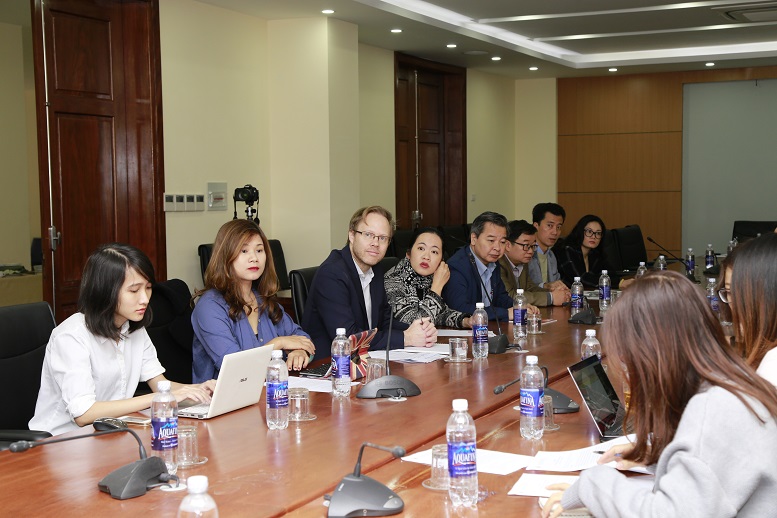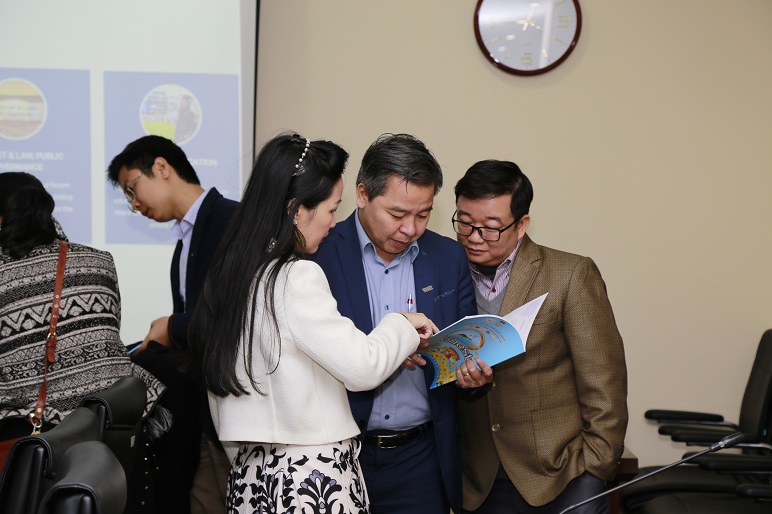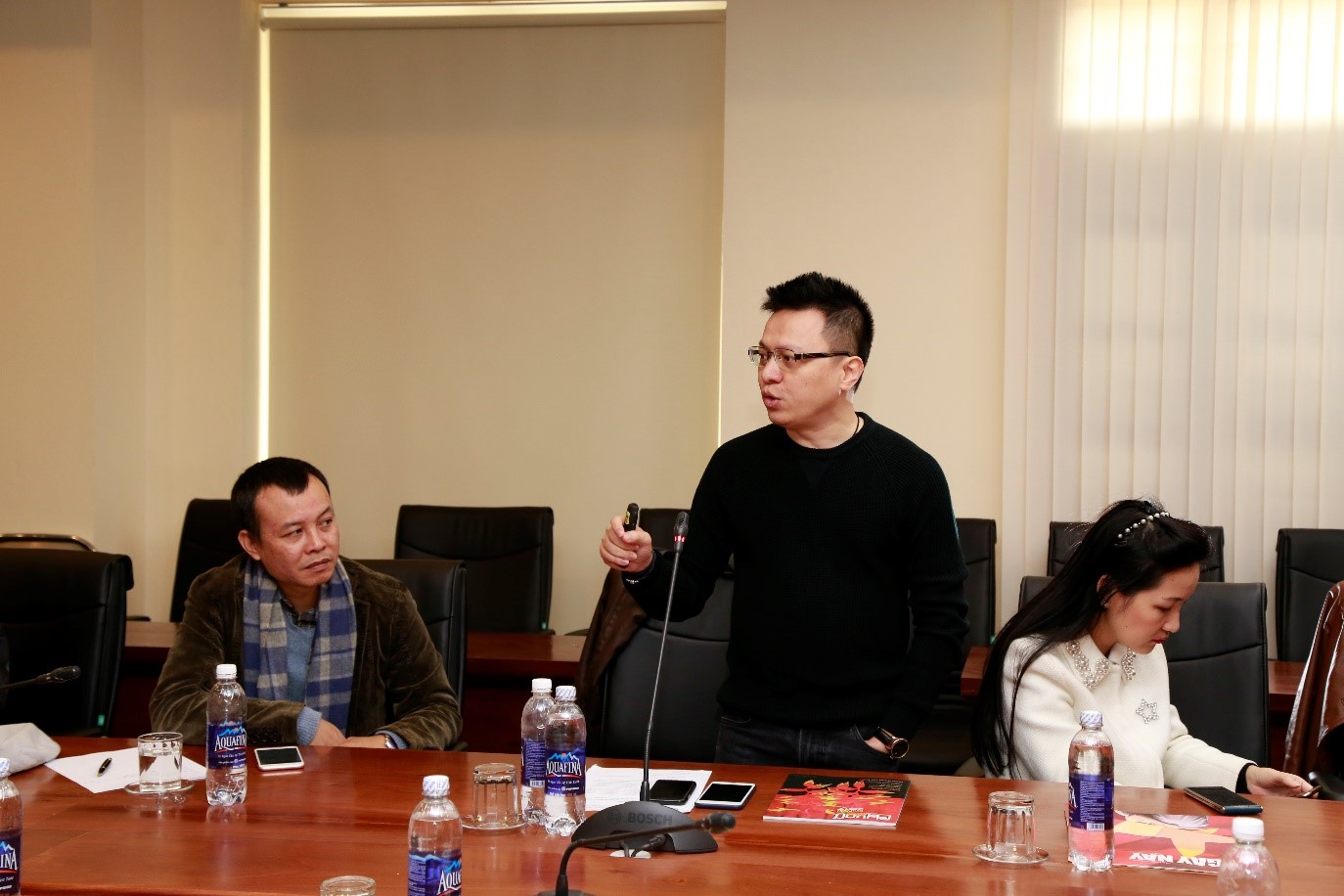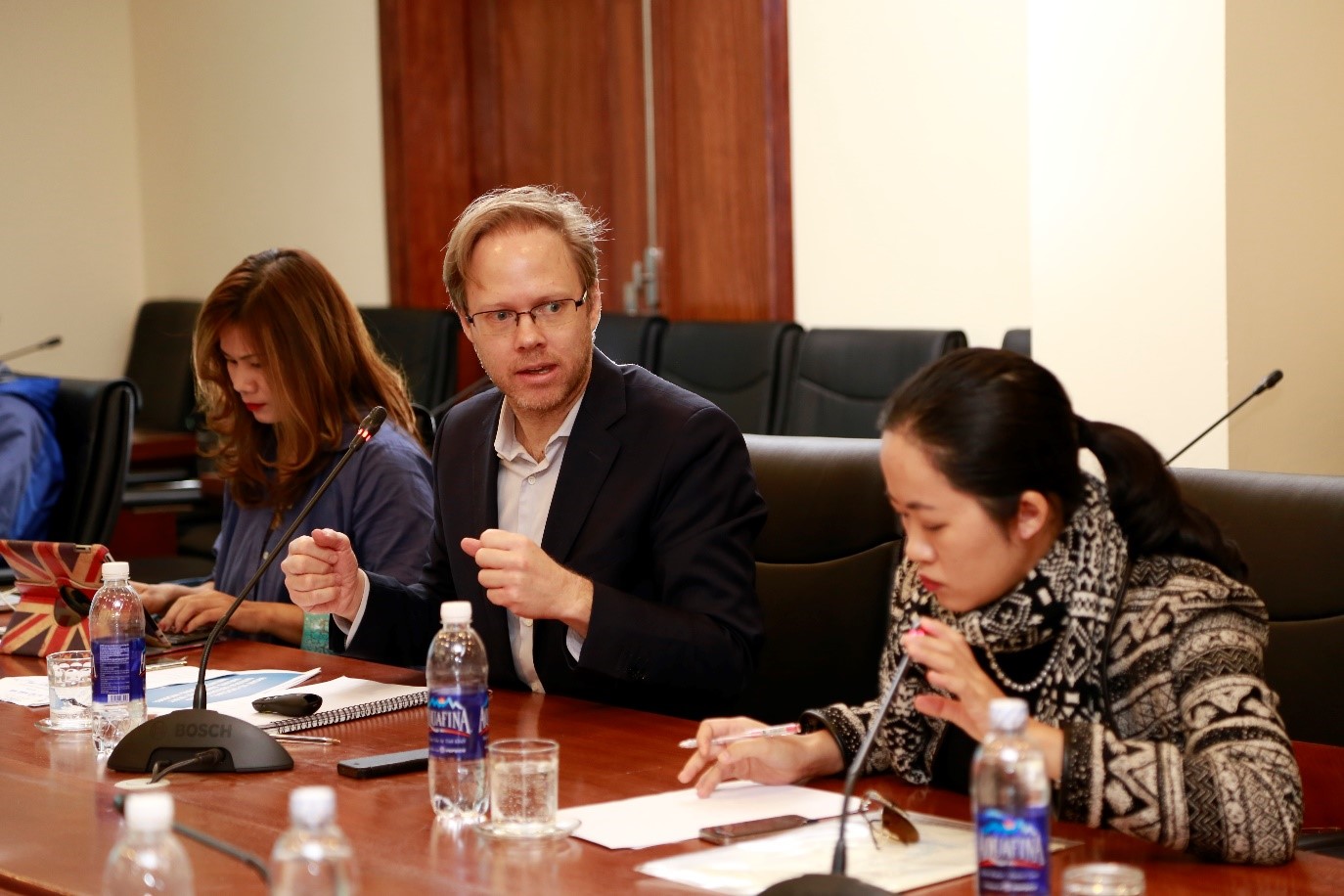
A roundtable meeting was held in Hanoi on 14th January 2017 on “Fake news on Social media and the role of reporters”. This was the first of a series of events convened by Vietnam Program for Internet & Society in co-operation with the University of Social Sciences and Humanities aimed at discussing the impact of “fake news” on social media in Vietnam and worldwide.
The core purpose of the roundtable was to present prominent examples, share experiences and obtain recommendations on effective ways to enhance the role of journalists within the context of maintaining credibility of journalism in the age of social media. More specifically, this event concentrated on examining several central issuses: How to keep trust of readers? How to filter the news for good ones? How to keep press ethnicity under high pressure of social media? And the necessity of a Code of Conduct for social media in Vietnam.
The roundtable was held with several distinguished guests including: Prof. Dr Pham Quang Minh - Dean of the University of Social Sciences and Humanities, Chairman of Science Board of VPIS, Assoc Prof. Dr. Nguyen Tuan Anh - Director of VPIS, Timothy Stoker Large - Former Director of Journalism and Media Programes, Thomson Reuters Foundation, Le Quoc Minh - Editor–in–chief of Vietnam Plus, Vietnam News Agency, Cao Hoang Nam - Coordinator of Vietnam Program for Internet and Society (VPIS), Dr. Pham Hai Chung - Co-chair of Internet and Media, VPIS, Dr. Phan Thi Thuy Tram – Member of Editor board of “Phu nu moi”, Nguyen Hung Son – Deputy Editor-in-chief of “Ngay nay”, Truong Hoang Long – Managing editor of “Tien phong” and representatives from several other newspapers and organizations in the field.

Prof. Dr Pham Quang Minh, Assoc Prof. Dr. Nguyen Tuan Anh, Dr Pham Thị Thuy Tram were considering Phu nu moi magazine.
Based on a variety of personal views and opinions from experts, journalists, representatives of Vietnam and international businesses, the roundtable focused on three main topics: an overview of global media in 2016; the impact of “fake news” in Vietnam; and the role of journalists on minimizing the negative effects of “fake news”.
Session I, presented by Mr. Large, focused on summarizing the overall picture of global media in 2016. The Digital News Report 2016 of Reuters Institute indicated prominent changes in the way that audiences discover daily news from social media and considered it as one of the most important source of information. Mr. Large also mentioned about several appealing examples and data about “fake news” all over the world in gereral and during the US election 2016 in particular. Additionally, Timothy predicted some new trends in 2017 namely, continuous improvement of news on social media, the more and more essential part of “Artificial Intelligence” and he also realized the role and chances of traditional journalism on keeping readers’ trust in the war with fake news.
Timothy Stoker Large, Former Director of Journalism and Media Program, Thomson Reuters Foundation with speakers.
Following the discussion of “fake news”, Mr. Cao Hoang Nam show serious concern about the impact of “fake news” in Vietnam by presenting illustrative examples of individuals, companies, even a society that are victims of “fake news”. Further more, Mr. Le Quoc Minh pointed out the role of reporters within this context. According to his speech, “fake news” has existed for a long-time, and currently widespread due to the development of social media. Many scholars and experts have warned that “fake news” is now a global issue and as people working in the field, we are in a battle with it. The press was no longer the gatekeepers to control news, preferring instead to verify reality and accuracy of information. Specially, enhancing professional ethics, being totally aware of changes in the way audiences access news, preparing new modes of operation will be the key challenges of reporters under the exponential growth of social media. Newspapers and journalists will become accurate information resources for community to reference, thereby removing the fake news.
According to Mr. Le Quoc Minh, Editor-in-chief of Vietnamplus, there are some steps to spot fake news:
-
Check the URL. Where is this story from?
-
Read the About page
-
If the story has a quote from someone prominent, or from an official, copy and paste it into a search engine such as Google.
-
Do a reverse image search on photos or other art in the story

Editor-in-chief of VietnamPlus, Le Quoc Minh
In the alarming time of “fake news”, speakers, scholars, journalists and business representatives recommended some solutions for the practice of reporting. One of the most prominent suggestions was for developing a “Fact Checking Services” which appeared as a way to apply certain regulations to social media. Another highlight of this session was the suggestion from Vietnam Program for Internet and Society (VPIS) to promote the project “The code of conduct on Vietnam social media” with a desire create a better Vietnam Internet environment.
 Tiếng việt
Tiếng việt

